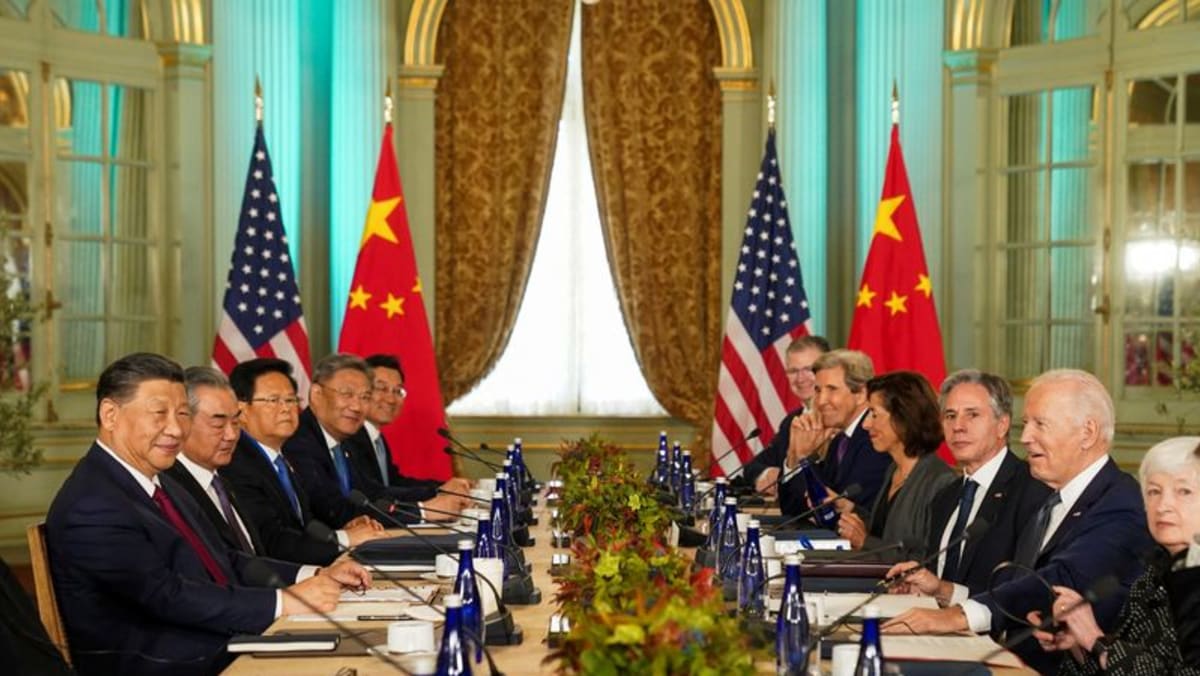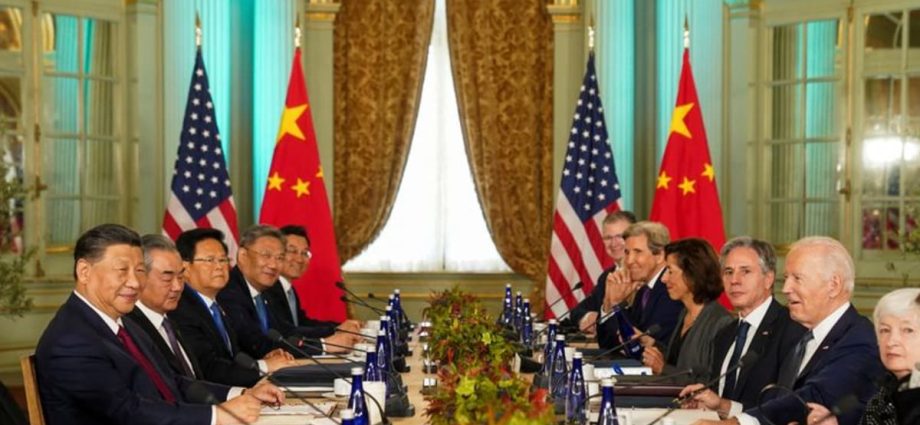
MORE CONTENTIOUS ISSUES FAR FROM SETTLED
For China, the meeting came at a time of significant economic slowdown. Progress would look like US messaging that it was not pursuing a strategy of “decoupling” or an all-out economic war. It was also looking for reassurance from the US that it does not support Taiwanese independence.
The bigger issues of contention, such as Taiwan (amid Mr Biden’s reiteration of the US’ unchanged commitment to a one-China policy), trade restrictions or China’s role in global conflicts, remain far from settled.
No amount of dialogue between the two nations’ leaders is likely to change these.
Looming in the background of the summit is the 2024 US presidential election, with Mr Biden trailing in the polls against the expected Trump candidacy. With more than 80 per cent of Americans expressing a negative view of China, any concessions around trade would be politically disastrous, even when a lifting of restrictions could achieve something the US public wants – lower inflation.
POSSIBLY THE LAST BIDEN-XI MEETING
For the Chinese, a change in the US administration offers a complicated picture. A better working relationship with Mr Biden might not count for much if this could be their last meeting.
A second Trump presidency portends a more intensified trade war and restrictions on China. At the same time, in contrast to most Republican presidential candidates, Trump has not taken a clear position of support towards Taiwan.
A decrease in US support for Ukraine, as Trump has indicated he favours, could remove one of the more uncomfortable elements in Xi’s “no-limits” partnership with Russian President Vladimir Putin.
For the rest of the world, the summit offers some hope that a return to dialogue between the superpowers may help smoothen the bumpy future of US-China relations.
Trisha Craig is Vice President (Engagement) and Senior Lecturer of Social Sciences (Global Affairs) at Yale-NUS College. The views and opinions expressed herein are those of the author(s) and do not represent the views and opinions of Yale-NUS College or any of its subsidiaries or affiliates.

